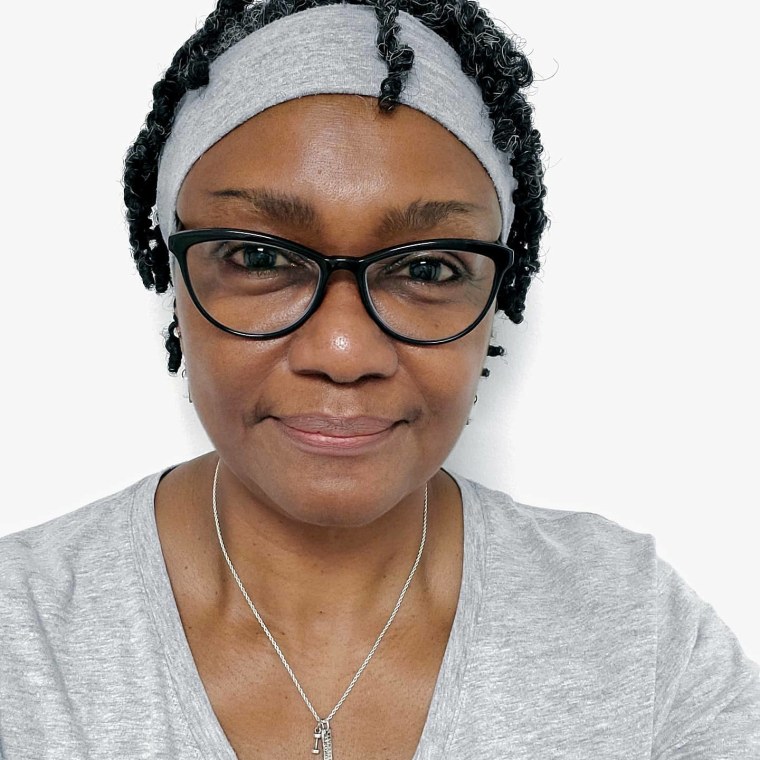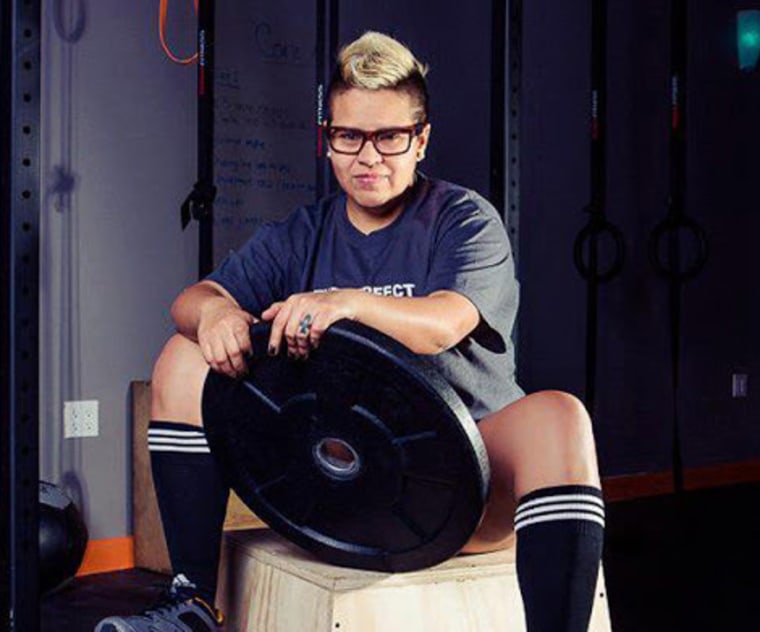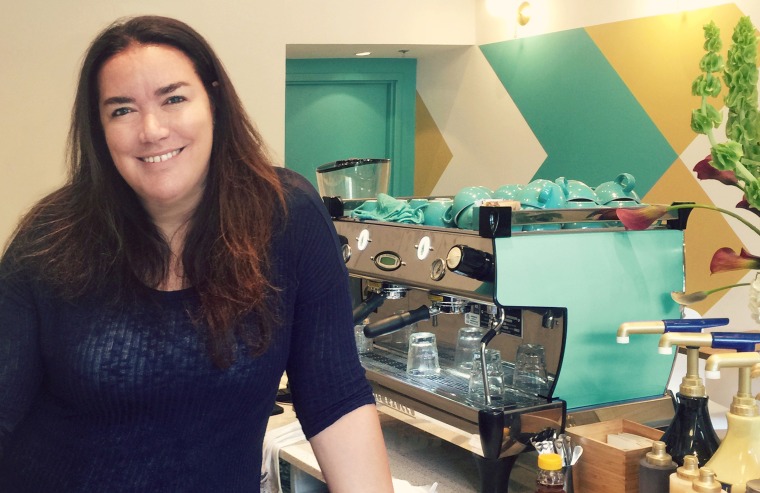Amid a global pandemic and nationwide protests for racial justice, Black and Latina-owned businesses are facing more challenges than ever before.
And as a result, many entrepreneurs are being forced to pivot and adapt to save their companies. Here are just a few incredible Black and Latina women who are successfully doing just that, while also spreading awareness and supporting minority women at the same time.
Debra Williams, S.M.A.R.T. Fitness

When Debra Williams first started her fitness journey, she weighed nearly 200 pounds and was struggling with high cholesterol and borderline high blood pressure. She decided to prioritize her health and wellness and shed 50 pounds in the process. All of her friends and acquaintances wanted to know how she did it.
Williams decided to show them and establish her own studio, S.M.A.R.T. Fitness in Philadelphia. The name is an acronym for Williams' approach to getting in shape: Specific, Measurable, Achievable, Realistic and Timely.Williams also established her studio as an inclusive and positive space for Black and curvy women.
Business came to a halt when her studio was forced to close its doors in March due to the coronavirus pandemic. Williams quickly took control, searching for other ways to keep S.M.A.R.T. fitness afloat. “Zumba, MixxedFit and personal training via Zoom were the ways to go,” she said in an interview with Essence. Williams now offers virtual classes and has more flexibility to train with clientele who she would otherwise not be able to reach if it weren’t for the pandemic.
"I just wanted to open a space where people feel comfortable and safe. I want people to see people who look like them and I want them to know they won't be judged." -- Debra Williams
Lisa Logan, The Nail Suite & The Body Suite
Manicurist and nail salon owner Lisa Logan has run a thriving business since 2012 and has an all-star client list that includes Beyonce, Katie Holmes, Mary J. Blige, Taraji P. Henson and Pink (just to name a few). But when COVID-19 struck, The Nail Suite had to close its doors, and Logan had to pivot.
Logan discovered a solution for taking care of her and her family, while also treating her daughter’s eczema and psoriasis. She decided to try infusing oregano oil (known for its healing properties) into soap, and that’s when Logan’s O’Really Oregano Soap was born. A month later, Logan’s soaps were selling at lightning speed and taking over the back-side of her salon. Her soap has even caught the attention of Carol’s Daughter founder Lisa Price, and Oprah Winfrey’s pedicurist, Gloria Williams, also known as the “Footnanny.” Now that Logan’s soap business is booming, she anticipates selling it in-store as well when The Nail Suite reopens.
“It’s important not to be a one-trick pony. Just take what you know and make sure you have something else to fall back on. Have people around you that can encourage you to open up your mind to the things that you can do. You have to have people who keep encouraging you. That’s how you can pretty much scratch the surface of all those things that you can do. You just have to dig deeper. Keep trying to educate yourself on new things that you can do.” -- Lisa Logan
Samantha Winship, Mother’s Finest Urban Farms

When the pandemic hit, panic buying and big agriculture plant closures led to emptier supermarket shelves and a threat to food security.
Consequently, city dwellers realized just how fundamental urban farming and locally-sourced produce is. Case in point: Mother’s Finest Urban Farms, a Black woman-owned farm in Winston-Salem, North Carolina that has expanded significantly to account for the growing demand for fresh produce. Owner and mother of three, Samantha Winship, started farming mainly for her family's health and self-sufficiency, but ultimately decided to also serve the community and CSA (Community Supported Agriculture). Winship expanded her family’s nearly three acres of urban growing space by leasing an additional five acres in other city limits to increase farming production. Since then, Mother’s Finest Urban Farms has become one of the best sources of fresh quality produce during the pandemic. Winship, who considers herself as the farm mother, specializes in beekeeping, poultry care, vermiculture, and more.
"Food is comforting to many people and knowing where their next meal is coming from is so important. Seeing the smiles on a family’s face when we drop off a box to their doorstep is worth all of the hard work." -- Samantha Winship
Nathalie Huerta, The Queer Gym

Nathalie Huerta launched The Queer Gym over a decade ago with a $50 gift card from Target.
Huerta seized an opportunity to serve her LGBTQ fitness community when she realized a need that was not being met. “As I began to present more masculine, I became more comfortable in my sexuality, but uncomfortable at the gym,” she said in an interview with CNBC. So, she began offering tailored training for gender nonconforming members and transgender members preparing for gender confirmation surgery.
Navigating the emotional impact of the pandemic feels familiar to Huerta, who first opened her business amid the 2008 financial crisis.
Since closing her gym’s physical location in Oakland, CA, her company shifted all of their clients to an online format—and now that their community is more accessible, they have nearly tripled in size, with only 40 percent of business coming from Oakland and the remaining 60 percent coming from around the United States and overseas.
“I want to start creating ‘happy, healthy, wealthy homos’—because economics is a part of wellness, and it's something that often the queer community gets excluded from.” -- Nathalie Huerta
Luciana Gomez, Café Victoria

In 2016, Luciana Gomez opened her coffee shop, Café Victoria across the American Airlines Center in Dallas, TX. Her goal was to bring coffee culture to her developing neighborhood, while keeping it an affordable, daily experience.
Despite the emotional challenges of closing her business during the lockdown and subsequent new dining regulations, her priority remained clear: keep her four employees working and the business running. She handed out brochures while walking her dogs and began to see orders slowly come in from the Dallas community. Gomez even caught the attention of "Shark Tank" host and Dallas Mavericks owner Mark Cuban.
Cuban, whose team plays across the street from Gomez’ coffee shop, placed an order of over 120 coffees and pastries for first responders at a nearby testing site and City Hall. Even with decreased sales and a pending loan application, Gomez emphasized the Latino community’s strength and said she considers it a blessing to keep her doors open. In an interview with CNBC she said, “As Hispanics, our currency is a little more resilient and we’re more culturally open to dealing with crisis. We keep the motor running until we can drive again.”
“Appreciate your background and highlight it. Do not try to blend in because this will make your uniqueness fade away, and it is exactly this uniqueness that makes you, you, and what will help you succeed.”-- Luciana Gomez